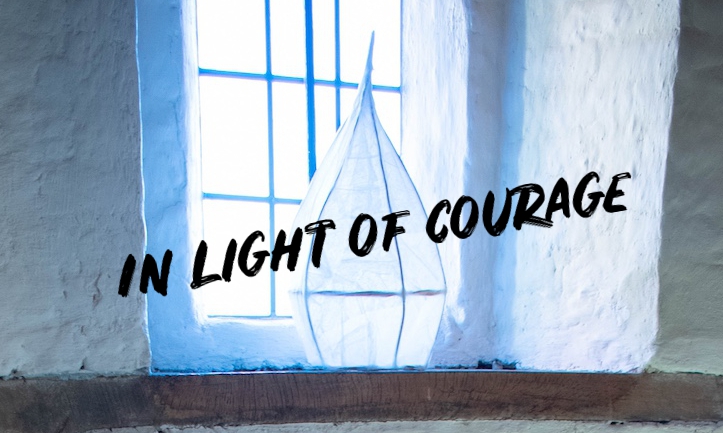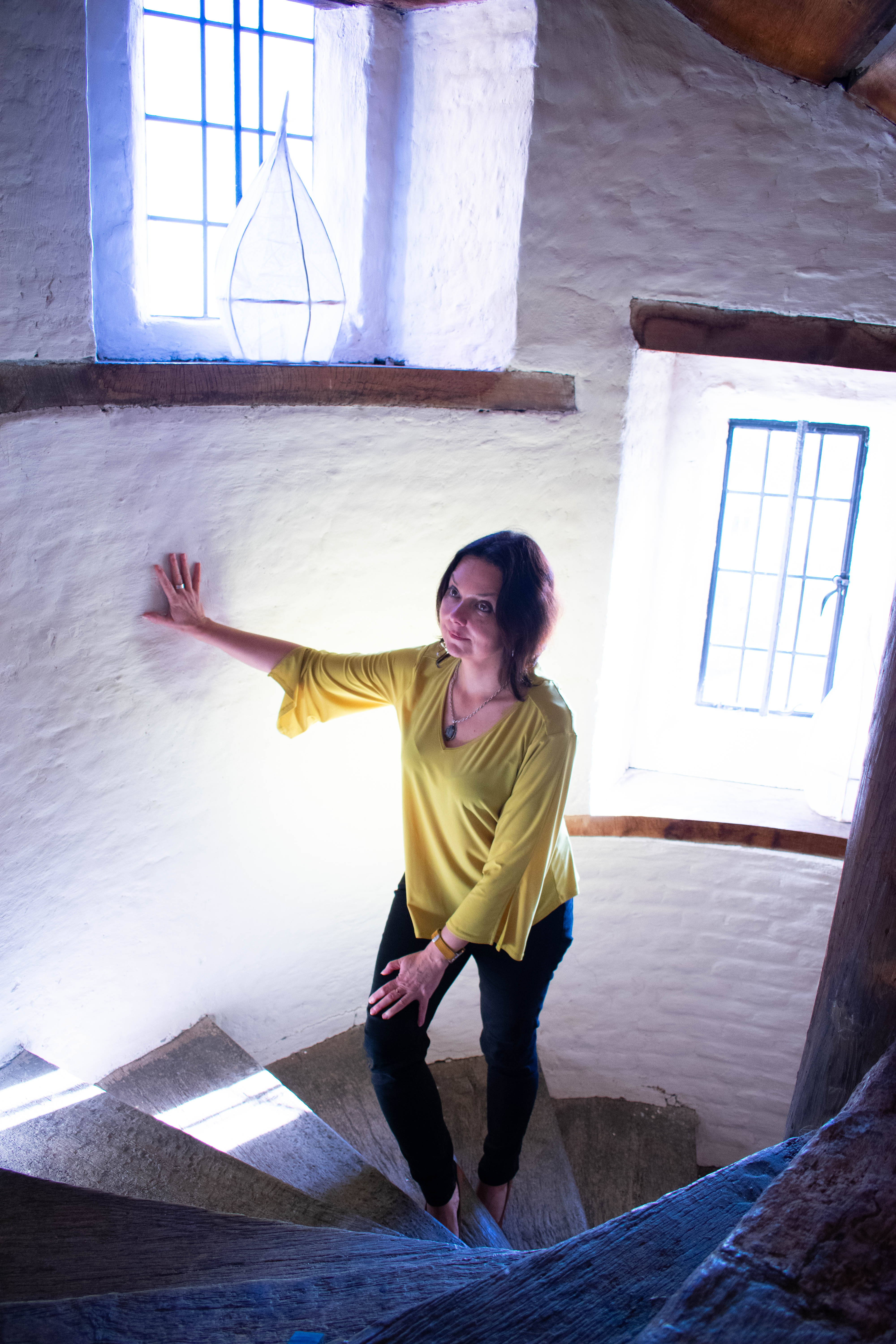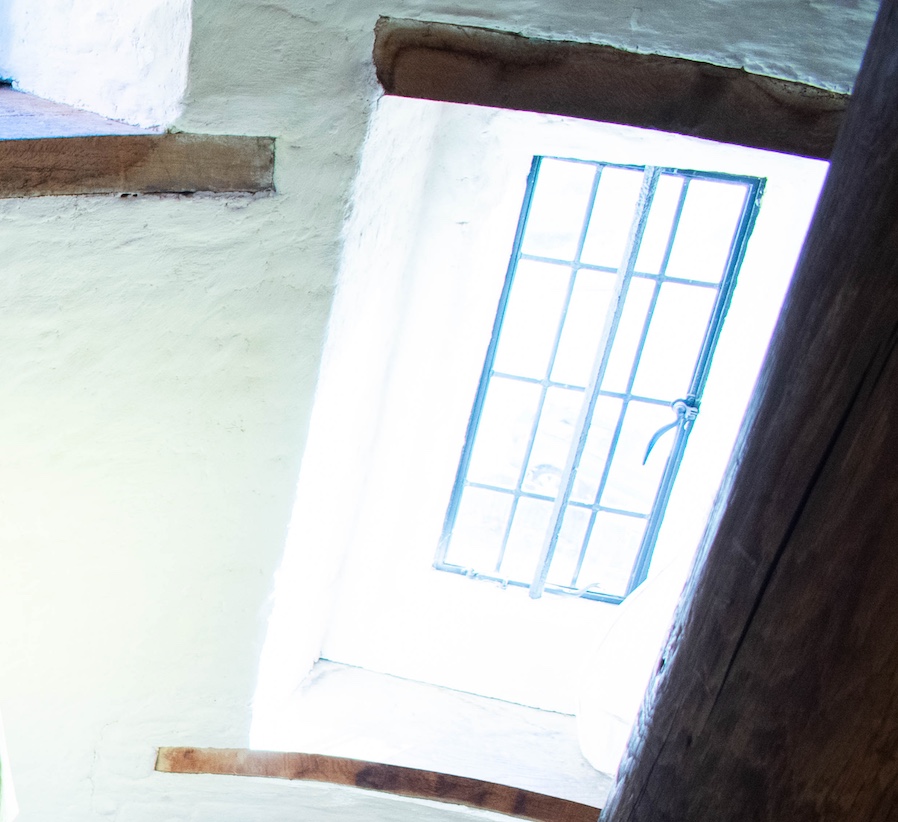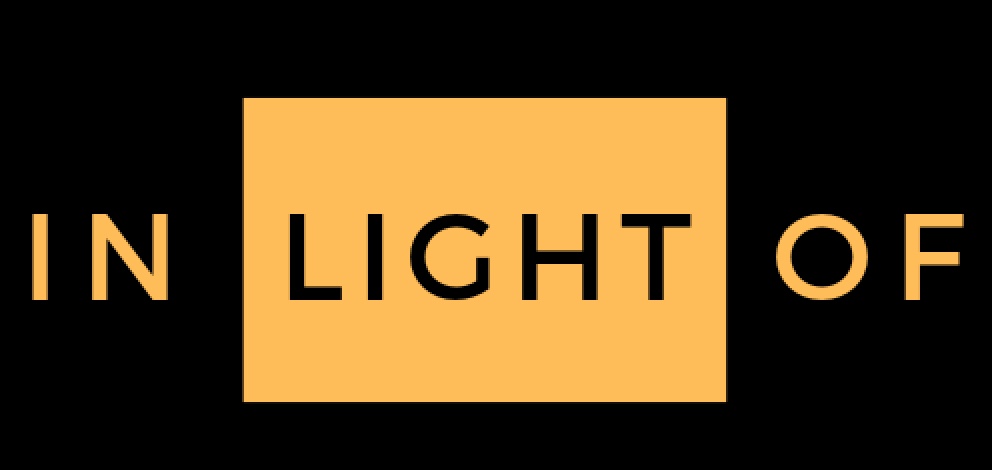
A few of years ago, I was driving to work as usual without expecting that a dramatic change was literally coming my way. A driver of a big articulated lorry decided to change the lane when I was next to it in my car, driving joyfully on the motorway on a very sunny morning. Everything that happened next is still a fuzzy memory. A team of firemen cutting my body out from the car and an ambulance taking me to the hospital. People around whispering: how did she survive “that”? I don’t know how or why I survived that collision. But I know that from that day my life has changed irrevocably and I am still grasping the meaning of that change. After a couple of rounds of post-traumatic stress disorder therapy, I was released with a blessing by a very nice psychologist, who promised that one day I will be able to forget and maybe even to drive. Three and a half years later, I am not able to do either. She did not mention to me that a relapse can hit me unexpectedly. So on the wave of freshly recuperated energy and enthusiasm from my sick leave, I decided to dive into new professional challenges. How naive I was…! No one tells us in therapy how long we will be struggling with PSTD or anxiety after a traumatic experience. No one can guarantee when we will start feeling like our old self. What I have learned through my individual experience is that the old self has disappeared for good and it is pointless to keep evoking it. Instead of asking when I get ‘my old life’ back, it may be more beneficial to build a new life and embrace the loss with gratitude and relief. It has taken me more than three years to get to this point when I can say: I hate what happened and I am grateful for what happened. It was a complicated journey, full of ups and downs, and it is not over yet. But after three relapses and underlying depression, that I was trying to hide mainly from myself, I can see the light in the tunnel. My body has never accepted what had happened. It was warning me against exhaustion and sending me signals to stop and alter my lifestyle, but I was not listening. At the same time I was praying for a change and some solace. So I found myself in a whirl of contradictory forces, where I was doing one thing and wanting the other. With hindsight, I can see that all ‘mistakes’ I made during that period were necessary, as they led me to the breaking point, when things finally started changing and I could not pretend anymore that everything was ok. At the breaking point I looked into the face of my fear and I saw a person there who had been in pain for a long time.

How did I pull myself out from the black hole? I actually acknowledged the seriousness of the situation and I started respecting my own pain and fear. In short: I decided to tame the anxiety and change it to fear. This is a a method by Paul Tillich, an existential philosopher, who believed that anxiety is part of being and it can only be dealt with if we change it into fear.
Tillich tells that we all need courage in the face of being, as being on its own is too scary to cope with. We try not to think about it every day, yet, it still hits us: a deep fear or anxiety which we cannot explain. It can happen to us in the middle of the day or during some activity and we cannot understand where it is coming from. We want to get rid of it, but it stick to us like a wet cloth. One day we get up, we look forward to experiencing our day or a meeting, and all of the sudden, bang, it gets us. Something stops us from enjoying life and pulls us into a strange trembling, melancholy, sadness, and passivity. We don’t see any value in our actions, plans, doings, or our own self. We don’t know where it comes from and we don’t know where it is going to take us. Sometimes it lasts a moment, sometimes days and weeks. It is a scary, dark feeling that leaves us devoid of energy and self-esteem. If it happens alongside other fears or problems we have in life, this state can last much longer and be even more destructive.
So what can be done when it happens? How can we build resistance to it? Tillich calls this state “the anxiety of meaninglessness“ and he sees its roots in our universal, human condition in the face of death and finitude. First of all, we need to accept that it will happen again…and again. He associates this feeling with the ultimate anxiety before three existential facets: fate and death, emptiness and meaninglessness and guilt and condemnation. All of them are blended in our existence, although in some moments one or two can dominate.
On the surface, we are too occupied with living to think about death. We do our best to remove death from our horizon, our contact lists and our social media. We try to believe it will not happen to us, only to those around us or those who are ‘very, very old’, who we will never become. Yet our subconscious, or ‘soul’, does not know about our ambitious plans to conquer death and very humbly falls into fearing it, as it should! Tillich teaches us that the only way to cope with our ‘dark holes’ of panic and anxiety is to accept it. Yes, however tough it sounds, this is the only way, and we need courage to achieve that goal. If we agree that death is in the heart of life, living with death means living with anxiety. The sooner we accept it, the easier it will be to cope with being and its challenges. It is easier said than done! We need a practical solution how to tame anxiety when it hits us. Tillich recommends equipping our anxiety with features and personal qualities, creating something like a persona in our minds. We can ask it: what do you want, why are you here, what are you afraid? Most importantly, Tillich differentiates between anxiety and fear. He believes that this differentiation provides us with a practical strategy to overcome anxiety. Namely, it enables us to give shape to fear and accept its role in our life. According to Tillich we need to change anxiety into fear, as fear means being afraid of something concrete, while anxiety has no shape or origin and captures us in entirely. Consequently, it means that we cannot fight anxiety but we can fight fear. It is a positive shift and a life-saving remedy for which we need courage, as anxiety will not let us go so easily. When the dark moment hits us, we need to see through the mask that the darkness is clothed in. The ‘mask’ can be some blockage that we need to remove to fully engage with our own self. If we wanted to be writer or a football player and our family persuaded us to be a lawyer or a PE teacher, as they wanted us to have a safe, salaried life, the mask that our anxiety adopted would be guilt and regret, knocking at the door of our consciousness to remind us that our life does not have any meaning and we are useless. In response to this fear, subconsciously, we outstrip ourselves to prove that we mean something: mainly through our relentless career struggles and rat-racing to win some professional acclaim, or any kind of affirmation from others. Under this existential force, we would be trying to get a few more likes on Facebook or Instagram, which would confirm the importance and value of our own being. And there is nothing wrong with it! Do not feel ashamed or let others embarrass you for trying to prove your own existence in some form. Everybody does it, but different people have different means at their disposal to do that, depending on class, gender, social or ethnic origin. You are you, and you are doing your best, no matter what others say. So why do we need the reaction from others to affirm our being at all? Why can’t we affirm our own value and importance for ourselves and by ourselves? Well, we don’t live in a vacuum and a human being needs relationships with others to develop socially. And we are taught from the early years to regard other people’s views, including those ones which regard us. Considering other people’s reactions and judgements towards us is a social strategy which enables survival in society as we know it. It means, that when I say: “don’t worry what other people will say, do what you believe is right for you”, I also follow a certain approach that dominates our culture in the era of individualism and ego-centrism. But such saying, essentially, does not help, as any decisions we make had been already underpinned by decades and centuries of actions and reactions of people around us and their ancestors before them. Importantly, Tillich encourages us to appreciate the group we live in and to participate actively in the group’s life. By describing behaviours from different societies, he shows that collective life and participation helps people to deal with anxiety. I really appreciate his definition of participation, as he emphasises that we all are part of something by proxy and we can benefit greatly from being connected with others, while at the same time we are always separated from them through our own self. To be part and to be singular at the same requires our love for both: for others and for our own self. We are not selfish or egoistic when we look after ourselves with love and attention. We are simply affirming our own existence, which can be called “ the courage to be as oneself”. But the self can only recognise itself as something separate and worthy because there is a world around of which it is part. Following this postulation, paradoxically, we can see that the more attention we give to our own self, the more love we give to others and vice versa! The world would not be what it is without our individual selves, so every time we do something for ourselves, we participate in creation of the world. Do we have enough courage to take responsibility for our impact on the whole world? For me, it was a beautiful moment to realise that self-love and love for others come from the same source: the universal being in which we are all one. Yet we can only fully appreciate it, if we affirm that we are singular and different.
By gaining courage we should be able to face other people’s judgments and unmask our own authentic self in the face of all three ‘naked’ anxieties. If other people’s judgments bother us, that feeling covers our deeper anxiety. As long as we let the masks drive our anxieties (sometimes literally, drive us mad) we will be inauthentic and terrified. Tillich argues that we apply inauthenticity in our behaviour in order to fight the terrifying anxiety of meaninglessness. To be authentic would mean “to have courage to accept oneself, in spite of being unacceptable”. By “unacceptable”, he doesn’t mean not worthy or not good enough in a social or moral sense. He just means the unbearable state of being us! We cannot face this simplicity, so we need to keep on comparing ourselves, judging ourselves, and adding extra meanings to our existence. Yet our life and our self will become acceptable and free from anxiety, if we accept that it is just our being that is worth it all and our only responsibility is to have courage to be. By practising courage for the sake of courage, we will fill our life with meaning. Even when other people judge us, or the masks of our anxiety push us against the wall, we will withstand it and we will not fall into the dark hole of self-doubt. We can defeat the painful ordeal of anxiety by replacing it with the objects of fear. If you can, grab some crayons, or a pen and try to give that fear a face: talk to it, listen to it, and make it your ally. Even if momentary, such a creative act will help you to affirm the trace of your being quite literally. You will discover joy from saying “yes” to your own human fear of non-being and meaninglessness. Like many existential philosophers before him, Paul Tillich knew that this is a task for life, but the only one that is truly worth living.

I never believed in spectacular awakenings before, as they always smelt of cheap melodrama, but eventually I had to admit: by applying “courage to be” something has changed for good and I felt it in my body in the form of physical lightness and in my soul as the sense of liberation and unleashed creativity. I am not sure what is going to happen next and where this new stage will take me, but I have never felt so free, so creative and so at home as I am now.
Quotations from, Paul Tillich, The Courage to Be: Third Edition (The Terry Lectures), Yale University Press, 2014. originally published in 1952.
by Dr. Marta Hawkins In-light-of
Knowledge Exchange and Transformational Coaching https://www.coachingandresearch.co.uk/


